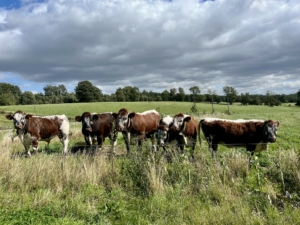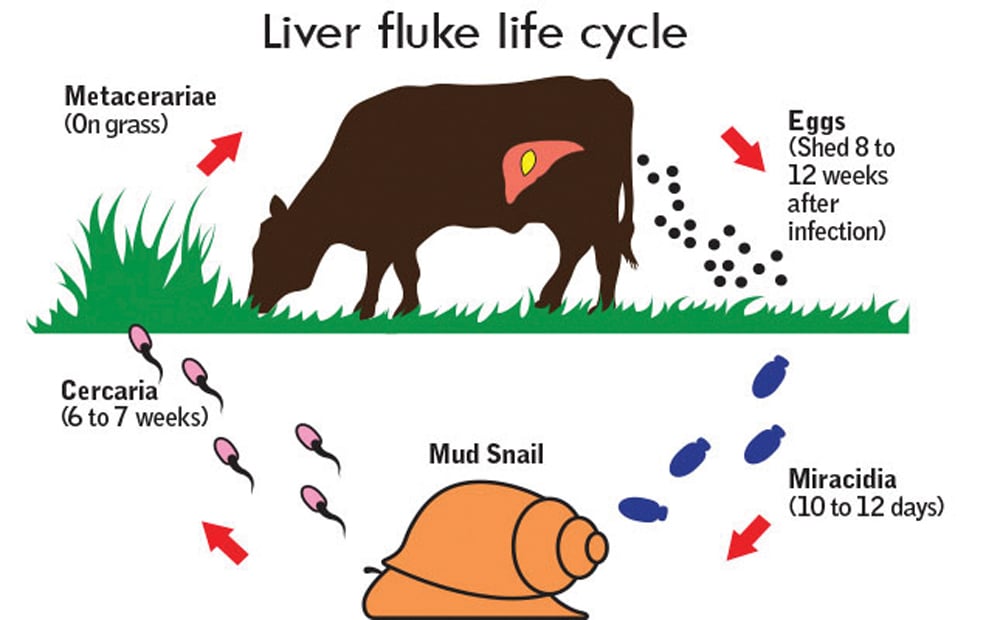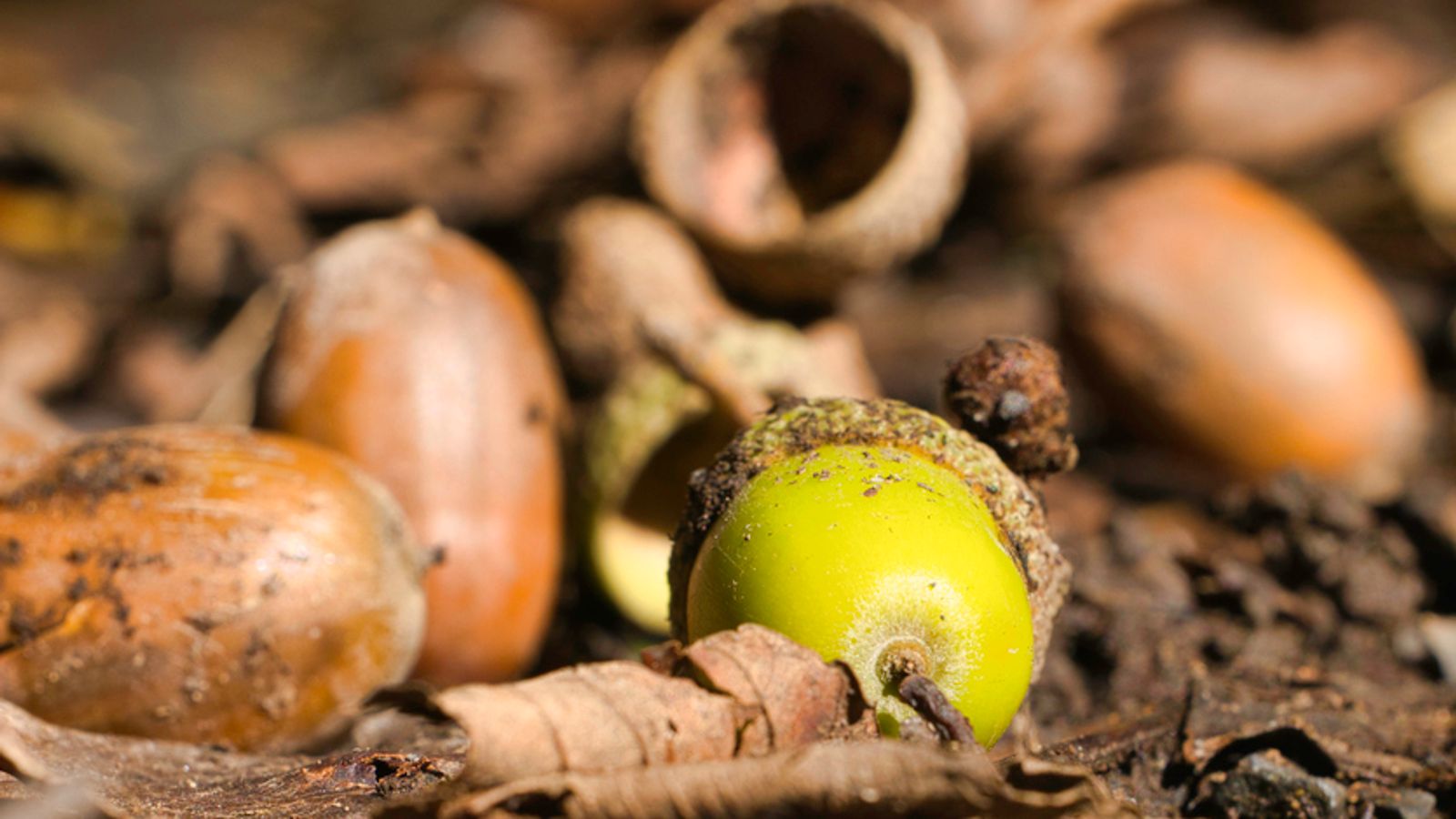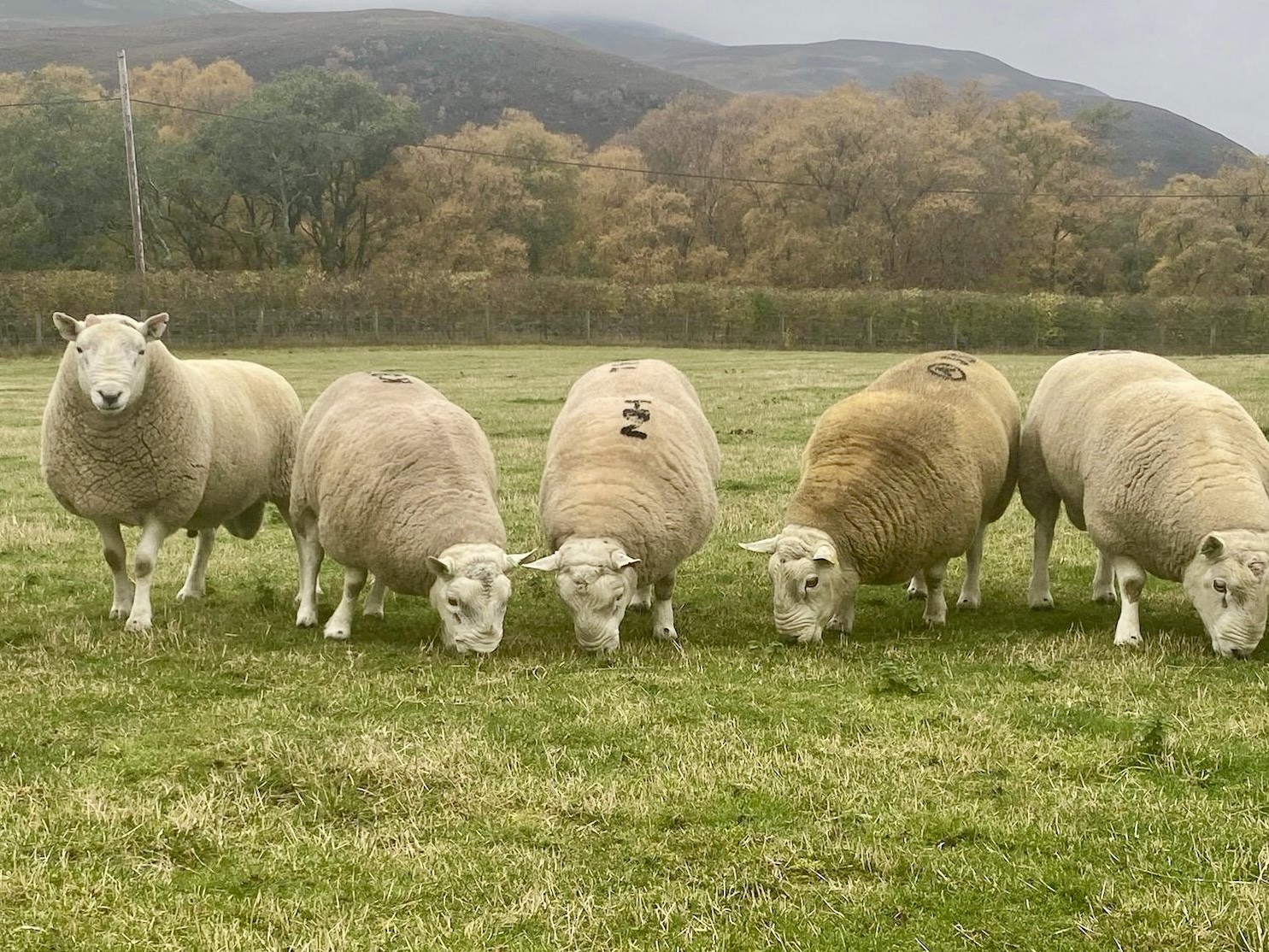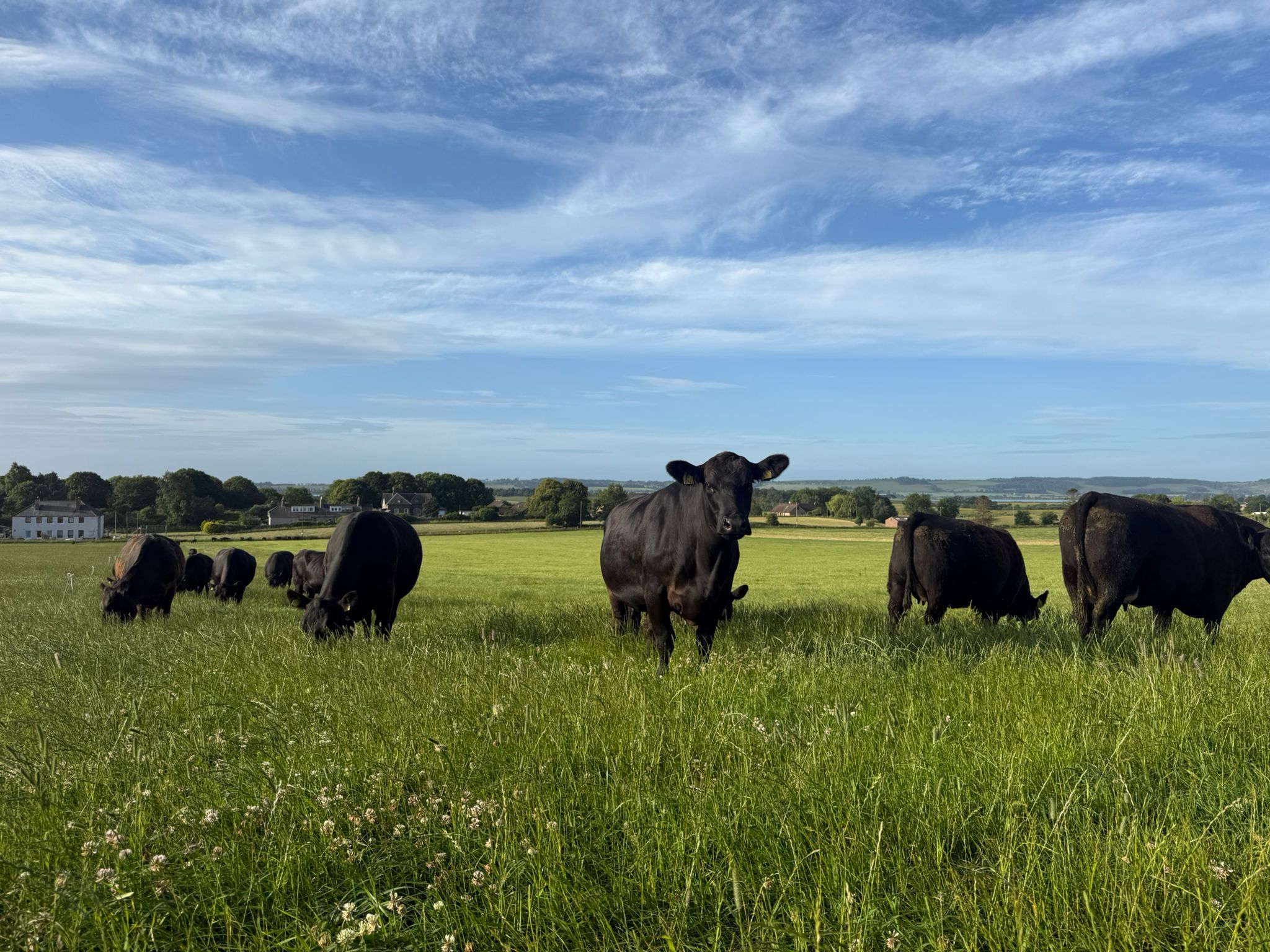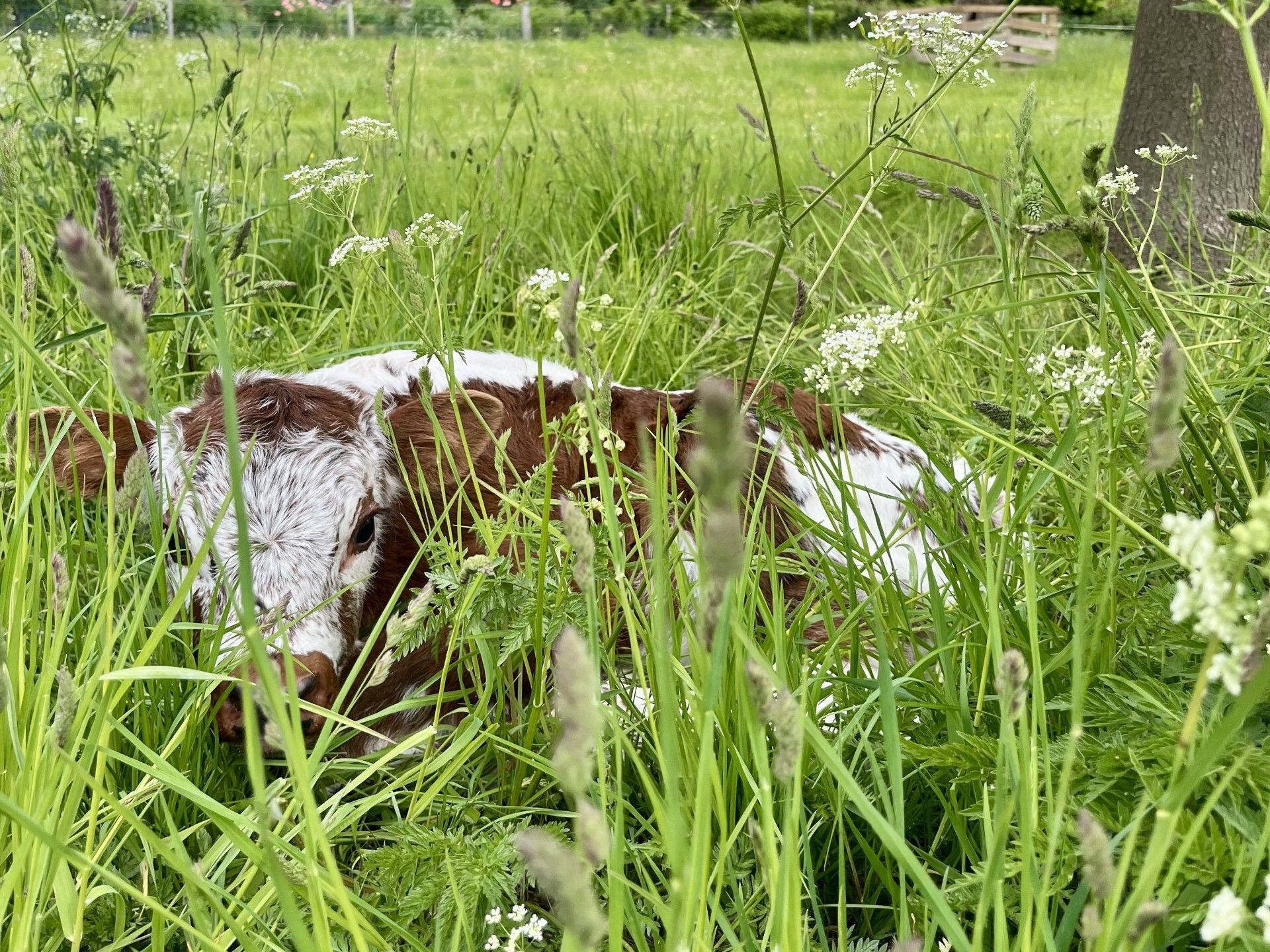Farm Newsletter August 2025
As we write harvest for many is well underway. Whilst the weather has been favourable for this, yields are down due to protracted dry weather earlier in the summer. The impacts of this are being felt across the livestock sectors also, with many grazers chasing grass. This far north we are buffered from some of the worse effects of this, with reports further south of farmers already tucking into winter reserves to keep stock fed. Whilst it has not been that extreme here, it has certainly presented challenges with gut worms and coccidiosis being prominent issues as stock graze on paddocks too long or return to them too soon.
Such weather challenges are now pretty much the norm. We can choose to bemoan them or choose to act to protect our soil fertility and moisture holding capacity. Ruminant livestock have a huge role to play in this and we’re very happy to help you meet these challenges and look after the health of your stock, particularly with respect to parasite risk management.
The first cases this year of Bluetongue have been diagnosed. Thankfully these are sufficiently far south not to pose an immediate risk but the threat of spread remains. Vaccination remains an individual choice but is gold standard protection should the virus make its way this far. Each farm should consider their risk factors on a case by case basis (which we’re happy to assist with) but many are choosing to vaccinate tup and bull studs, high value pedigree animals and sale animals that may be heading south.
Many thanks to all those who popped along to the stand at Kirrie show, it was good to have a catch up and the show was another success, we hope to see many of you at our late summer social BBQ, details below!
Summer Social BBQ – All Welcome!
We are delighted to invite all our farming friends and clients to a Farmers social BBQ at Strathmore Rugby Club in Forfar on Saturday 27th September, from 5pm til late.
Please let Jennifer know how many will be coming along by phoning either Kirrie or Blair.
Looking forward to seeing you there!
Worm Warning
Our colleagues at SRUC Vet Services have recently issued a warning regarding worms in lambs with significant numbers of cases of high worm egg counts and lambs affcted by nematodirus passing through their PM rooms. They had the following to say:
- The weather has become more mixed with some very hot dry spells and also some periods of heavy rainfall.
- This creates the ideal conditions for worm larvae to survive and migrate up the grass stem, increasing the risk of ingestion by grazing lambs.
- After a prolonged dry spell, large numbers of immature worms may be present and cause significant clinical disease before a high faecal egg count (FEC) is detected, particularly with nematodirus.
- Therefore, assessing lamb body condition, clinical evidence of disease and performance as well as FECs is really important.
Summer and autumn nematodirus infection is not a new phenomenon but appears to be more common this year.
The bottom line is it is far better to test not guess; careful monitoring of growth rates and worm egg counts is vital to avoid a problem, please do speak to us for farm specific advice.
Calf Scour Vaccination – A Success Story
We were hearing from a farmer this month with a wee success story that we thought was interesting to share. The indoor spring calving herd historically would have had its fair share of calf scours caused by Cryptosporidium – leading to losses and high medicine usage.
This winter one group were given Bovilis Cryptium (the new crypto vaccine) pre-calving, whilst another group were not. The vaccinated group suffered no clinical cases and no losses, whilst the unvaccinated lot suffered clinical cases with a number of calves still not thriving.
Vaccination for Crypto is a relatively new tool in our armoury so it’s nice to hear of it working in the field and preventing losses and reducing medicine usage. If you are aware you are at risk of Crypto issues at calving then speak to us well in advance to see if implementing a vaccine protocol could work for you and your herd.
Lungworm In Cattle – Sustainable Control
From mid-August we would start to expect to see cases of Lungworm, typically in first-season grazers. Lungworm (Dictyocaulus viviparus) is an increasing challenge for beef herds with changing climatic patterns. This summer has been largely very dry, but a wet spell into late summer could see a sudden release of infective larvae on pasture, and subsequent outbreaks.
Recognising the risk
Typical signs include coughing at rest or after exercise, faster breathing, poor thrive, and in severe cases, respiratory crippling and death. First-season grazers are most vulnerable, but adult cattle can also be affected if immunity wanes.
Sustainable prevention
Blanket wormer use can lead to resistance (which we are seeing more and more of), disrupt gut health, and remove the natural “trickle” exposure that helps cattle develop lasting immunity. Instead:
- Know your pasture history – High-risk fields are those grazed by youngstock in the past 12 months.
- Graze smart – Rotate grazing and avoid returning calves to contaminated paddocks in the same season.
- Monitor, don’t guess – Watch for early coughing, and consider group faecal or blood testing to detect infection before it spreads.
- Build immunity – Consider vaccination for at-risk calves; it’s most effective before turnout.
- Target treatments – Use wormers strategically when clinical signs or testing indicate need, not by the calendar.
Healthy lungs mean better growth, fewer losses, and a lighter medicine bill. A sustainable approach protects not only this year’s calves but the long-term productivity of your herd, please give us a call to discuss.
In search of small cottage
We are potentially in need of a small cottage or similar for vets accommodation, ideally in the Kirriemuir to Alyth area. If you have anything or are aware of anything suitable coming up, please speak to one of the directors. 
